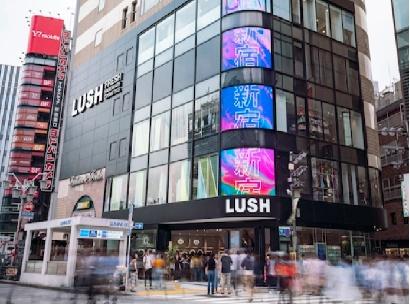
Australian wine startup Vinomofo is looking to the United States after partnering with YouTube entrepreneur Gary Vaynerchuk to launch his new wine brand Empathy Wines.
Vaynerchuk first got his start in 2006 with his YouTube channel WineLibrary TV and while the topic was wine, Vaynerchuk was using his channel to build the brand of 'Gary Vee'.
The 43-year-old has 2 million subscribers on YouTube and 6 million followers on Instagram, runs media consultancy VaynerMedia and is the author of several best-selling books.
Vaynerchuk says while he is best known for his YouTube presence, he is focused on entrepreneurship and, as an angel investor, backed tech companies including Facebook, SnapChat and Uber in their early stages.
"Every day now I have been running a business," he says. "It is what I like to do. It would not make me happy being the personality Gary Vee, it's not what I do, I am an entrepreneur."
Vaynerchuk says his latest venture, Empathy Wines, is focused on having empathy for wine producers and consumers by "skipping two layers in the US". The model is relatively unique in the United States but mirrors Vinomofo's approach of bypassing retailers and sourcing directly from wine makers and producers.
He has raised $2.3 million to launch the new venture, but Vaynerchuk says YouTube will be the main driver of Empathy Wine's success.
"It was remarkably important to put me on the map in the wine world and it continues to be a remarkably important platform for my career in storytelling," he says. "Everything I thought it was back then it has done, it has turned into one of the most important platforms in the world."
Vaynerchuk's YouTube channel was also the platform through which he originally met Vinomofo founders Justin Dry and Andre Eikmeier, who started their business as a wine blog.
"We have had a friendship and then it was a very natural transition to have a conversation once we decided to start a direct to consumer web brand," Vaynerchuk says.
The number of people that have become aware of Vinomofo through this project alone is insane.
He has ambitious plans for Empathy Wines and says demand for the product is strong."I think it is going to be a substantially major wine brand in America and then it will be significant work to build it in to a global brand," Vaynerchuk says. "It will be one of the biggest direct to consumer brands in the price point in America in the next three to four years."
Vinomofo is selling Empathy Wines in Australia, New Zealand and Singapore and Dry says he expects to sell out its allocation of 600 to 1000 cases. But the broader benefit from the partnership for Vinomofo is the potential to build its brand globally, particularly in the United States.
"The number of people that have become aware of Vinomofo through this project alone is insane," he says. "Anytime [Vaynerchuk] posts anything, it is seen by half a million people."
Dry says Vinomofo is "growing solidly" having just hit over $60 million in turnover and is back in profitability.
While major investor Blue Sky is experiencing troubles (its parent company collapsed into administration last month), Dry says this does not affect Vinomofo.
"I really feel for the guys going through it as it is obviously challenging and hard and all of those things," he says. "It doesn't have an impact on the operation of Vinomofo or any of their portfolio companies just that holding company. We were invested in through Blue Sky's investment fund which was made up of a whole heap of individual investors. It is business as usual for us but there is going to be noise in the market.
In the meantime Dry hopes Vinomofo's partnership with Vaynerchuk will help open doors for the Australian startup in the United States which he says is "absolutely a focus".
"He is an incredibly influential and connected person in that market," he says. "I will definitely talk to him about our opportunity to launch in that market. I am deep in negotiation at the moment, it depends how that plays out."












